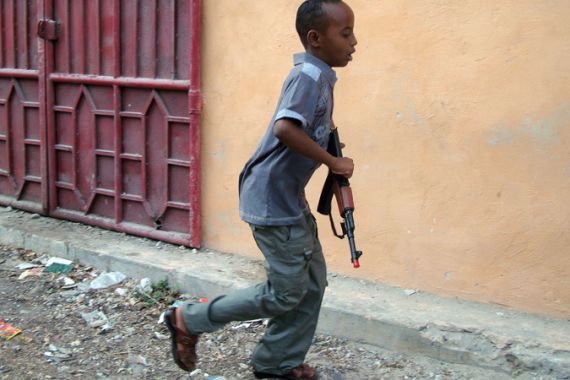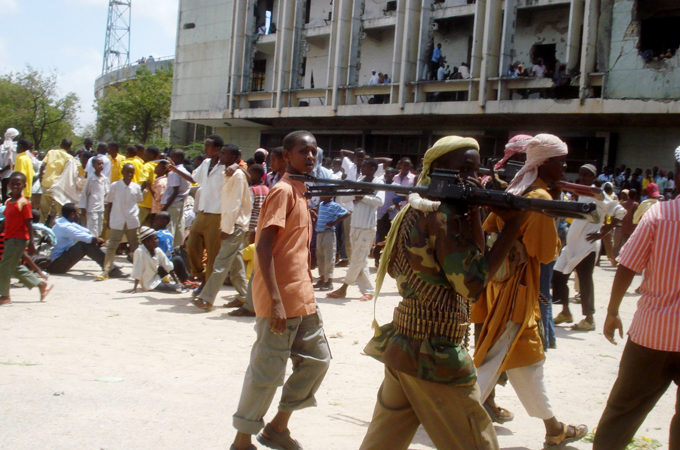UN paints bleak Somalia picture
Representative to Horn of African nation calls situation “very grave” as political instability compounds security woes.

 |
| Somalia remains in the grip of violence as al-Shabab fighters seek to remove the UN-backed government AFP] |
The United Nations special representative to Somalia has said the situation in the country remains “dire” and “very grave” as divisions among the top leadership threaten efforts to rein in anti-government fighters.
Augustine Mahinga told the UN Security Council in New York on Thursday that the African Union mission in Somalia, or Amisom, was “very badly under-resourced, underprotected and underfunded”.
“There are still gaps in financial and material support and they [troops] need more helicopters to help with troop movement and to evacuate casualties,” Mahinga said.
He said AU peacekeepers “are not being paid in line with other UN peacekeeping forces and that they just don’t have proper surveillance and communication systems to actively protect the civilian population”.
Somalia has been gripped by violence as 6,000 AU peacekeepers from Uganda and Burundi – with a UN mandate to protect the presidential palace and the airport – struggle to restore peace and order in the capital, Mogadishu.
The transitional government controls little of Mogadishu while fighters belonging to al-Shabab, a group which seeks to topple the UN-backed administration, holds sway over much of the rest of the city and large areas of the country.
Mogadishu violence
One member of parliament was wounded in the face and five government troops were also hurt as suspected members of the group fired mortars at the presidential palace on Thursday.
Government and AU troops responded by firing mortars into the Bakara Market, killing at least 12 people and wounding 40 others.
Al Jazeera’s Cath Turner, reporting from New York, said Mahinga was “basically telling the UN: ‘Stop talking; make something happen'”.
“Mahinga also made some comments which could very easily be interpreted as a swipe at the UN bureaucracy and their inability to actually do anything meaningful on the ground.”
Our correspondent quoted Mahinga as saying: “It’s not the number of initiatives that’s in deficit; it’s concrete and practical actions on the ground.”
Mahiga said the African Union would soon ask the Security Council to authorise increasing the number of its peacekeepers in Mogadishu and other “strategic locations” in Somalia.
He said the AU and the seven-nation East African Intergovernmental Authority on Development (IGAD) had agreed to deploy 2,000 more troops in Mogadishu, which would enable the AU mission to reach its full mandated strength of 8,000. He added that both bodies expected the full deployment to rise to 20,000 in the coming months.
Political rift
Thursday’s attack on the presidential palace happened as a session took place to discuss a motion calling for the vote against Omar Abdirashid Sharma’arke, the prime minister.
Sharif Ahmed, the Somali president, has urged the parliament to “change” the government amid a dispute with Sharma’arke.
Somalia analysts said that given the significant number of pro-Sharif MPs present, it seemed almost certain that Sharma’arke would likely lose the confidence of the parliament. MPs who back him boycotted Thursday’s session.
The rift between the two men has angered UN, AU and regional officials who have called on the transitional government to come together to fulfil their obligations.